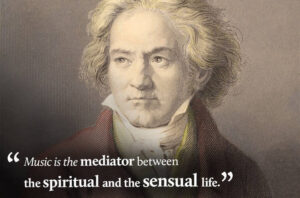“Joy is the infallible sign of the presence of God.” ―
?
Now shall I walk
Or shall I ride?
“Ride”, Pleasure said;
“Walk”, Joy replied.
?
Now what shall I —
Stay home or roam?
“Roam”, Pleasure said;
And Joy — “Stay Home.”
?
Now shall I dance,
Or sit for dreams?
“Sit,” answers Joy;
“Dance,” Pleasure screams.
?
Which of ye two
Will kindest be?
Pleasure laughed sweet,
But Joy kissed me.
~ W. H. Davies, “The Best Friend”
As a child I couldn’t help but wonder why my mother was so sad. I’d often hear her weeping in her bedroom. I understood nothing about depression; I only knew she appeared to float on a perpetual sea of sadness.
It’s a storm many attempt to escape, through any means possible.
When I was young I too attempted to escape the storm. I roamed wide, rode fast, danced in circles and drank my way into pleasure — and largely missed the sweet kiss of Joy.
In my mind I saw joy as something profane not sacred, conjured not discovered and chased not given. As a consequence, I found myself looking for joy on roads I was not traveling and in times I was not living. When I drank I found I could invent a fake Joy and fake pleasure to numb my very real sadness.
Now that I’m older (and sober) I’ve learned a thing or two about joy, mostly that it’s never found in:
- another time,
- another life,
- another place.
Some believe Beethoven discovered the kiss of Joy in his final symphony.
The Ninth Symphony was substantially different from Beethoven’s previous eight. It was written later in his life when he was completely deaf and just coming out of a long period of deep depression. When his darkness lifted he found himself a changed man and the symphony reflects this change. He said that through his torment he discovered a peaceful place, where life could be more a conversation and less an argument.
The Ninth Symphony was Beethoven’s homage to Joy where he found harmony in contrasting sounds just as we can find harmony in the contrasting forces of our own lives.
Perhaps the symphony is best heard when our burdens are heavy and our cares pressing
“Ode to Joy,” found in the last movement, was taken from a poem by Frederich Schiller. It describes a new day of peace, freedom and universal brotherhood. The movement ends with a sumptuous climax, and in a way no one had ever heard before, when a single voice emerges to sing:
“Oh Friends, no more of these sounds! Let us sing more cheerful songs, More songs full of joy!”
This is followed by the whole chorus which raises the entire symphony up to the rafters and explodes into overpowering, pure joy.
How could the storms of life produce such happiness?
Ever singing, march we onward, Victors in the midst of strife, Joyful music leads us Sunward In the triumph song of life.
Not surprisingly, the European Union adopted “The Ode to Joy” as its anthem, in keeping with the musical metaphor of inclusion represented in the Ninth Symphony. Indeed, after the horrors of the wars visited upon the Europeans in the Twentieth Century, what better way to signify a new age of goodwill and unity than through the triumphant message?
Now, if you will, enjoy the eternal surprise that is this heavenly piece of music. I’ve selected the rendition provided us by a flash mob in the Spanish city of Sabadell. May you be kissed by Joy!
Just a thought…
Pat
NOTE: We are experiencing some problems when people try to reply directly to a post. Until these issues are resolved, please send any comments directly to Pat at pjmoriarty48@gmail.com.
Copyright © 2021 Patrick J. Moriarty. All Rights Reserved.
Would you like to submit a post to Just A Thought? To learn more, please click here.


